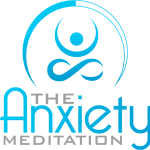A new study on neuroscience suggests that anxiety can be reduced by a good night’s sleep. William Shakespeare was right when in Macbeth he made his protagonist say that sleep is the “balm of hurt minds.” Sleeping for a full night can make emotions stable, while not sleeping for a night can trigger anxiety levels by 30%, as a new study published by UC Berkeley shows.
How Does Deep Sleep Help?
According to researchers, this kind of sleep is most perfect for the restoration of anxious brain. In deep sleep, which is referred to as slow-wave and NREM (non-rapid eye movement) sleep, the neural oscillations are synchronized a lot. There is also a drop in blood pressure and heart rates in this state.
UC Berkeley suggests that deep sleep can lead to an overnight reduction of anxiety through a rearrangement of brain connections. Deep sleep appears to be a natural inhibitor of anxiety or anxiolytic when one gets it every night. There is also suggestion that lack of enough sleep makes anxiety levels rise while such stress can be reduced with deep sleep state.
Nature Human Behaviour, a journal, published some findings to state that there is a strong neural association between anxiety and sleep. It points that sleep is a non-pharmaceutical and natural remedy for various anxiety disorders and these have been detected in around 40 million grown ups in America. The instances are also rising among teens and children.
How to Get Deep Sleep?
These are some tips to have deep sleep during the night:
- Have a definite time to go to bed and wake every day at the same time, even in the weekend or when you have bad sleep for a night.
- Cool down your bedroom temperature. Around 65° F is the best to cool your body and have a deep restorative sleep. If there is coldness in your feet, put socks on.
- 1 hour before you go to bed, dim every light and shut down all electronic devices and screens. Blackout curtains may be assistive.
- In case you are unable to sleep, leave the bed and do any relaxing and quiet thing until you feel the urge to go back to sleep. Return to bed then.
- After 1 pm, avoid caffeine and do not return to bed in an inebriated state. A sedative, alcohol does not let you sleep properly. It can even obstruct REM dream sleep, which forms a vital part of any sleep cycle.
What Do Scientific Research Suggest About Deep Sleep?
A series of experiments was carried out by UC Berkeley using polysomnography and functional MRI. The brains of eighteen young grown-ups were scanned to view their emotional disturbances after sleep for an entire night, and even after a night without sleep. The evaluation of brain waves of participants after an entire night of sleep showed a significant reduction in anxiety levels, particularly in case of those who suffered from a more slow-wave Non-Rapid Eye Movement sleep.
 The Anxiety Meditation
The Anxiety Meditation 



